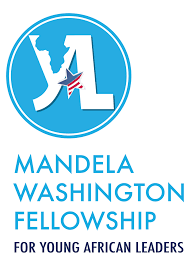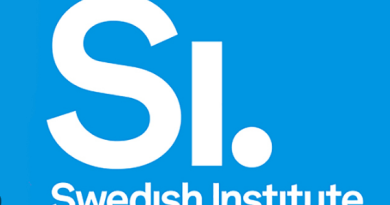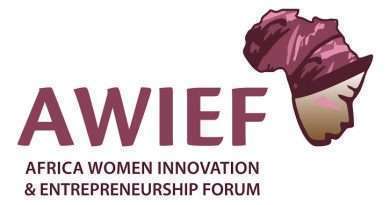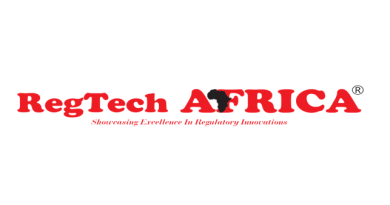Applications open for the Mandela Washington Fellowship for Young African Leaders 2024
The U.S. Department of State’s Bureau of Educational and Cultural Affairs (ECA) is seeking proposals for a cooperative agreement to manage the FY 2024 Mandela Washington Fellowship for Young African Leaders. This fellowship program has successfully connected over 6,500 young African leaders from various sectors, fostering stronger relationships between Sub-Saharan Africa and the United States while preparing participants for leadership roles across the continent. The Mandela Washington Fellowship is a key initiative of the Young African Leaders Initiative (YALI), which focuses on promoting democratic institutions, economic growth, peace, and security in Africa and the U.S.
The Leadership Institutes, which are a core component of the fellowship, are expected to be six weeks long and hosted at a recognized U.S. college or university. These institutes will offer groups of around 25 young African leaders specialized academic content in one of three tracks, along with leadership development activities, networking opportunities, community service projects, site visits, and cultural experiences.
Each applicant is allowed to submit only one proposal for consideration. Any duplicate submissions from the same applicant will be disqualified and not reviewed further.
Purposeof the Mandela Washington Fellowship for Young African Leaders
The Mandela Washington Fellowship serves as the primary program of the YALI, which encompasses the YALI Africa Regional Leadership Centers and the online YALI Network. The primary objective of the Fellowship is to enhance the knowledge, skills, and experiences of the Fellows in order to promote and empower leadership, cross-cultural exchange, mutual understanding, and the establishment of a sustainable, esteemed network of effective leaders in critical sectors across Sub-Saharan Africa. The Fellowship directly supports the foreign policy objectives of the United States for Sub-Saharan Africa, including the strengthening of U.S.-Africa relations. The Fellowship offers African leaders the opportunity to further develop their abilities through intensive six-week Leadership Institutes at colleges and universities in the United States, a Summit, a chance for approximately 100 Fellows to participate in the PDE, and other subsequent alumni programs.
Leadership Institutes
The Institutes should also incorporate a component of community service, allowing the Fellows to directly experience the pivotal role of nonprofit organizations and volunteerism as fundamental values within U.S.-based civil society. The Institutes should emphasize the significance of community service and explore the impact of such activities on the community. Furthermore, the Institutes should provide Fellows with a comprehensive examination of the specific themes outlined within the three tracks. Fellows should acquire both theoretical knowledge and practical skills. The Institutes should uphold ECA’s mission of fostering mutual understanding between citizens of different countries and citizens of the United States. To create an inclusive environment, the Institutes should feature speakers from diverse backgrounds and encourage open and collaborative discussions. Additionally, the programs should offer ample opportunities for Fellows to interact with Americans from various backgrounds, engage with their U.S. peers, and connect with relevant student and civic groups to share their experiences and insights about life in their respective home communities.
Leadership Institute Tracks of the Mandela Washington Fellowship for Young African Leaders.
The Leadership in Business Institutes aim to provide Fellows with a comprehensive understanding of U.S. entrepreneurial strategies in both the for-profit sector and socially-minded enterprises. This particular track is designed to enhance Fellows’ expertise in business and entrepreneurship, while exploring the evolution, background, obstacles, and achievements of U.S. enterprises and social enterprises, both domestically and internationally, with a specific focus on the African continent. The curriculum may cover a wide range of topics, including innovation and technology, business plan formulation, ethical business practices, the convergence of business with civil society and government, workplace diversity and inclusivity, global and regional trade, infrastructure development and service provision, sustainable business growth strategies, environmentally conscious business practices, public-private partnerships, crisis management in business, the creative economy, and financial management, among other relevant subjects.
The Leadership in Civic Engagement Institutes are designed to offer Fellows an overview of how individuals and groups of citizens have influenced U.S. history, government, and society, while also exploring the similarities and differences with experiences and opportunities in Africa. This track seeks to define civic engagement, analyze its evolution in the United States, and cultivate skills in areas such as active citizenship, community-based mobilization, fostering inclusive communities, involving marginalized groups in civic initiatives, the interaction of civil society with economic development, business, and government, grassroots activism, strategic planning, social justice, political mobilization and leadership, volunteerism, and utilizing traditional and social media to promote civic causes.
The Leadership program at Public Management Institutes aims to provide Fellows with a comprehensive understanding of various aspects of public management, administration, and leadership. This includes topics such as regional economic and workforce development, public service, financial and resource management, public finance and budgeting, planning and the global knowledge economy, the intersection of government with business and civil society, diversity and inclusion policies and initiatives, and domestic and foreign development policies.
The Professional Development Experience (PDE) is an integral part of the program, where the award recipient is responsible for organizing four-week PDEs in the United States for approximately 100 Fellows. These PDEs are specifically designed to offer Fellows valuable professional experiences within U.S. organizations, enabling them to enhance their leadership skills, expand their practical skillsets, and establish long-term professional relationships with their U.S. counterparts.
For U.S. companies and organizations, hosting PDE Fellows presents a unique opportunity to benefit from the insights and knowledge of talented young African professionals. As the PDE Fellows often work in the same sector as the host organization, it allows for the establishment of global networks and potential expansion of work in Africa. The PDEs should be carefully designed to provide an engaging on-site experience for Fellows within relevant agencies and organizations. Each Fellow should have a single placement for the entire duration of the PDE, ensuring they gain an in-depth understanding of the host organization. Typically, each host organization should expect to host only one Fellow per PDE cohort, with exceptions made for organizations with multiple offices, which may host up to three Fellows in different cities in very limited cases.
In order to ensure that every Fellow has a meaningful professional experience during their PDE, it is essential for PDEs to involve at least one designated host supervisor/mentor who fully understands the goals and objectives of the Mandela Washington Fellowship. This supervisor/mentor should be capable and willing to provide the Fellow with valuable professional insights in their respective field of expertise.
Mandela Washington Fellowship Summit
The responsibility of planning and executing a Summit either at the beginning or end of the Leadership Institutes lies with the recipient. The purpose of this Summit is to facilitate connections between Fellows and leaders from various sectors in the United States, including the private, public, and non-profit sectors. This will lay the foundation for long-term engagement.
The Summit will span three to four days and should encompass the following elements: opportunities for Fellows to interact with senior U.S. government officials, U.S. civic leaders, and members of the diplomatic community; engagement between Fellows and leaders in areas such as climate change and the environment, agriculture, public health, science and technology, business, creative economy, and banking and finance; inspirational speeches from distinguished U.S.-based leaders and/or other prominent figures; formal and informal networking opportunities for Fellows to connect with each other; workshops and seminars that complement the academic themes explored during the Institute and the leadership curriculum; and the sharing of information regarding alumni and follow-on activities. The Summit also serves as a platform for host Institute staff to exchange ideas for future programming. A debriefing session between the Institute staff and program staff will be conducted, and applicants are required to include a detailed plan and timeline for the Summit programming.
The Summit budget should encompass all expenses related to event space, housing, and meals for both Fellows and Institute staff. The recipient is expected to suggest potential locations for the Summit, with Washington, DC being just one of the options. Additionally, the recipient should be prepared to accommodate requests for virtual engagement with Fellows, such as video or digital production, if such requests arise.
Alumni/Follow-on Activities
Proposals should outline plans for follow-on activities that ensure ECA supported programs are not standalone events. These activities should be designed for alumni, including Fellows and Reciprocal Exchange participants, and should incorporate innovative ideas that align with the program’s goals and objectives. The proposed activities should contribute to ECA’s mission of fostering mutual understanding between the people of the United States and other countries. The proposal should include a timeline and outline of the follow-on alumni programming, details on how it will coordinate with existing alumni efforts, and an explanation of how the activities will establish and maintain long-term connections.
Proposals should also include plans for small grant components that encourage alumni to utilize their exchange experience to make a positive impact in their home communities. Furthermore, proposals should outline a method for recognizing exceptional alumni who have demonstrated strong servant leadership and advocacy on behalf of the Fellowship. Applicants are encouraged to suggest ways to provide digital resources to Fellowship alumni to support their professional growth, fund their event travel, and assist ongoing efforts of Reciprocal Exchange alumni. Finally, proposals should allocate funds for on-demand alumni activities.
Funding Details of the Mandela Washington Fellowship for Young African Leaders.
Fiscal Year Funds: For the fiscal year 2024, the allocated funds amount to $17,885,000. In the following fiscal year, 2025, the NCC year-one will also receive $17,885,000. In the subsequent fiscal year, 2026, the NCC year-two will receive the same amount of $17,885,000, subject to successful performance and fund availability.
Approximate Total Funding: The total funding estimate is approximately $53,655,000. This includes the base year funding and two NCC years, contingent upon successful performance and fund availability.
Approximate Number of Awards: There will be one award granted.
Approximate Average Award: The average award amount is expected to be $17,885,000, subject to fund availability.
Minimum “Floor” of Award: The minimum amount for the award is set at $17,885,000, pending fund availability.
Maximum “Ceiling” of Award: The maximum amount for the award is $17,885,000 for the base year of FY 2024, pending fund availability.
Anticipated Award Date: The anticipated date for the award is August 1, 2024.
Anticipated Project Completion Date: The expected completion date for the project is November 30, 2028.
Eligible Applicants for the Mandela Washington Fellowship for Young African Leaders.
This competition is open to U.S. public and private academic and cultural institutions, exchange-of-persons, and other not-for-profit organizations that meet the requirements outlined in Internal Revenue Code section 26 USC 501(c)(3). It is essential that applicants have nonprofit status with the IRS at the time of application.
Please take note of the following additional eligibility criteria for this NOFO announcement:
According to ECA’s grant guidelines, organizations with less than four years of experience in conducting international exchanges are limited to a maximum of $130,000 in ECA funding. ECA intends to provide a cooperative agreement worth $17,885,000 to cover all necessary costs for implementing this exchange program. Therefore, organizations with less than four years of experience in conducting international exchanges are not eligible to apply for this competition.
All proposals must adhere to the requirements specified in the NOFO, POGI, and the PSI. Failure to comply will result in your proposal being deemed technically ineligible and will not be further considered in the review process. Each applicant organization may only submit one proposal to ECA. If multiple submissions from the same applicant are found on grants.gov, ECA will only consider the submission that was made closest in time to the NOFO deadline. This submission will be the sole proposal reviewed by ECA from that applicant.
Application for the Mandela Washington Fellowship for Young African Leaders.
For details and to apply visit the official website
Deadline – April 30, 2024





